Brown, Prichard questioned about Medicaid at town hall
By James Grob, jgrob@charlescitypress.com
Charles City-area residents wanted to talk about about a wide and diverse range of issues with their state-level politicians on Saturday, but health care funding seemed to be at the top of the list.
About 30 people met with Sen. Waylon Brown, R-St. Ansgar, and Rep. Todd Prichard, D-Charles City, at a town hall discussion at the Floyd County museum. The event was sponsored by the Floyd County Farm Bureau, the Butler County REC and the Charles City Chamber of Commerce.
“It’s great to be able to have these open dialogs and discussions,” Brown told the crowd. “We can have a difference of opinion, but still have great conversations and talk about the issues that are important to you guys.”
Floyd County Supervisors Roy Schwickerath, Linda Tjaden and Doug Kamm were among those gathered, and all three peppered Brown and Prichard with questions, and also clarified the situation created in the county by changes to management of Iowa’s Medicaid system.
The three supervisors — and many others in attendance — were particularly concerned with the financial situation at the Floyd County Medical Center.
The supervisors agreed last month to contribute $250,000 to the Floyd County Medical Center in the next fiscal year to help the hospital meet financial challenges. The hospital had asked for $500,000, citing changes in the Medicaid system management that had reduced reimbursements by more than $740,000 between the fiscal year that ended June 30, 2018, and the previous fiscal year that ended June 30, 2017.
“It’s a tough situation for the hospital,” Prichard said. “For the first time in anyone’s memory we’ve had to ask for support from the county to help our hospital. The issue is a statewide issue, and it has to do with Medicaid privatization.”
Many health care facilities have claimed they have experienced financial havoc since former Gov. Terry Branstad discontinued the state’s operation of the Medicaid program and turned it over to three private managed care operations (MCOs) three years ago.
Prichard, who has been outspoken against the Medicaid changes, called them the root cause of the local issue.
“The contract has not worked for Iowa,” Prichard said. “These companies are not regulated in any significant way. They make their own decisions as to what they’re going to reimburse, what procedures they’re going to cover and what waivers they’re going to give. There’s no oversight.”
Brown said that he realizes that the privatization of Medicaid in Iowa, as it is, has not worked, despite some of his Republican colleagues who have indicated otherwise to the media.
“I’ve never said it’s working,” Brown said. “We have two pieces of legislation coming forward. One is to put oversight in and other things to improve the MCO system. The other is to change it from an MCO to an Administrative Services Organization (ASO) system.”
Brown said the ASO model is based on patient outcome.
“It’s a model that’s used in Connecticut. They were in the same position that we are in now,” Brown said. “Connecticut was an MCO state at one point, and it wasn’t working for them, for the same reasons it isn’t working for us now. We also have an aging population, so we’d need to modify this so that it works for our aging population, and that’s where we’ve run into a lot of snags.”
One woman at the town hall asked Brown what was wrong with the way the Medicaid system was working before, and wondered why the state couldn’t just go back.
“What I was told was the cost of it was escalating to the point where it was going to be unsustainable,” Brown replied.
The supervisors pointed out that the changes shifted health care funding from the state level to the local level.
“Everyone needs to understand that if the state says we can save this much money on Medicaid, for instance, in reality they’re just passing it off as a different tax, because now we’ve got to try to find a way to fund it locally,” Schwickerath told Brown and Prichard.
Prichard agreed, and said about 650,000 Iowans are on Medicaid system, and they are no longer getting the services they deserve.
“The state used to be in the business of overseeing the Medicaid system,” he said. “You had people who were responsible for making the decisions as to who’s covered, what procedures will be covered, and what is fair pay, things like that.
“I think the hospital is only getting reimbursed about 55 percent of what they’re billing. A business can’t afford to only get paid for half of what it does,” Prichard said.
The county supervisors said they have discussed changing the medical center’s current status as a memorial hospital, run by a board of commissioners who are appointed, to a county hospital managed by a board of directors who are elected by the voters. Such a board would have the power to levy taxes on its own to support the hospital.
A hospital board of directors would be directly responsible to the voters for any decisions it makes regarding hospital management or tax-supported funding. Schwickerath, Kamm and Tjaden all indicated they felt this doesn’t really solve the Medicaid problem, because either way the funding will come from local taxpayers.
“This is a horrible situation that we’re finding ourselves in,” Prichard said. “I don’t like the idea of raising local property taxes to subsidize the bad behavior of these three MCOs.”
FCMC is one of two hospitals in the state designated as a memorial hospital — the other is in Grundy Center. The supervisors said the FCMC hadn’t requested funding from the county in more than 20 years. In the past, the hospital has been able to fund itself as an enterprise.
“The hospital is not alone — you’re got medical providers across the board, across the state, who aren’t being reimbursed, from ambulance services to dentists to therapists to social workers,” Prichard said.
The supervisors told Brown and Prichard that the Medical Center has closed its Nashua Clinic, transferred the operation of the Meals on Wheels program to another community group, and made reductions in staff to offset the lost funding. Several others at the town hall expressed concern that more services would be on the chopping block.
“I love our hospital. They’ve taken such good care of me when I’ve gotten sick,” said one woman at the meeting. “What will I do, where will I go, if we lose this service? What will anyone do?”
Prichard, the House minority leader, said that the issue needs to be addressed at the state level. He said Democrats have introduced legislation, but he doesn’t believe there are enough votes to pass it at this time.
“We’ve introduced, at my suggestion, legislation to take long-term care out of the privatized system. I view that as a good first step to restore some accountability,” Prichard said. “There are 46 votes for that in the House right now. We’ll see what happens. I’m not hopeful right now. It doesn’t have any support from the other side of the aisle.”
Beyond the issue of health care funding, those present Saturday had questions about conservation and water quality issues, the Beginning Farmer Tax Credit, bicycle safety traffic laws, judicial selection, private school vouchers, the Forestry Reserve Program and state backfill payments — or the potential lack thereof.
One person in attendance asked about reintroducing the death penalty in Iowa — an issue that both Brown and Prichard said they were against.
“I’m pro-life,” Brown said. “To me, that means pro-life in all cases.”
Brown, who serves on the transportation, commerce, ways and means, labor and business and agriculture committees, said he has been personally working on legislation in regard to short line railroads, and how to rebuild that infrastructure to help better transport commerce goods. He is also looking into windmill regulations, which he said is one of the issues that seems to be an up-and-coming topic.
He said he appreciated the opportunity to meet with Charles City voters.
“At the end of the day, we’re down there to be your voice,” Brown said.

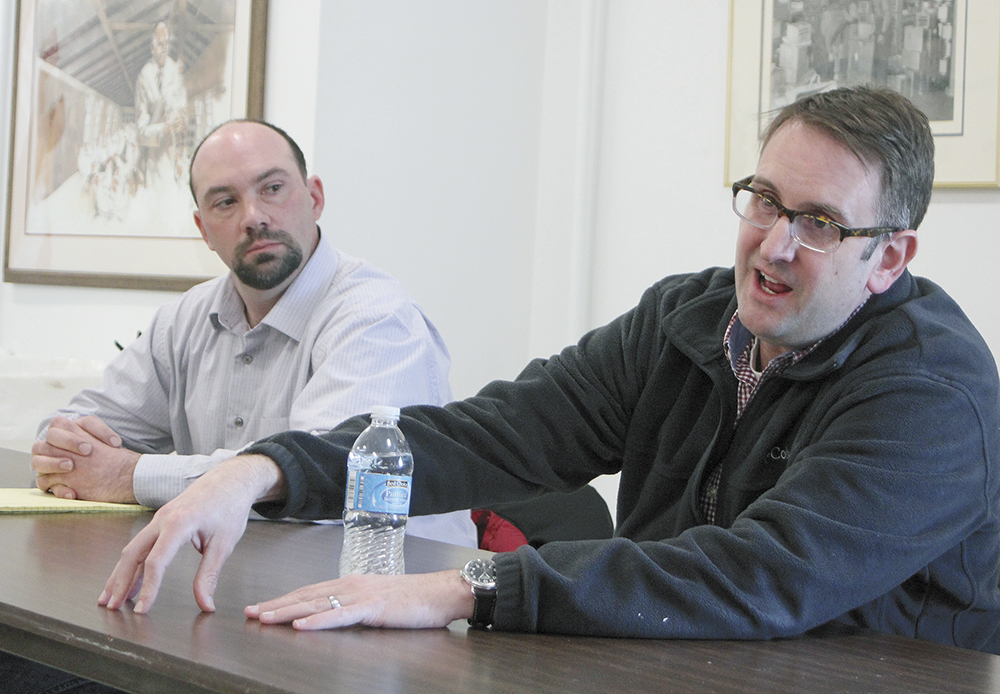
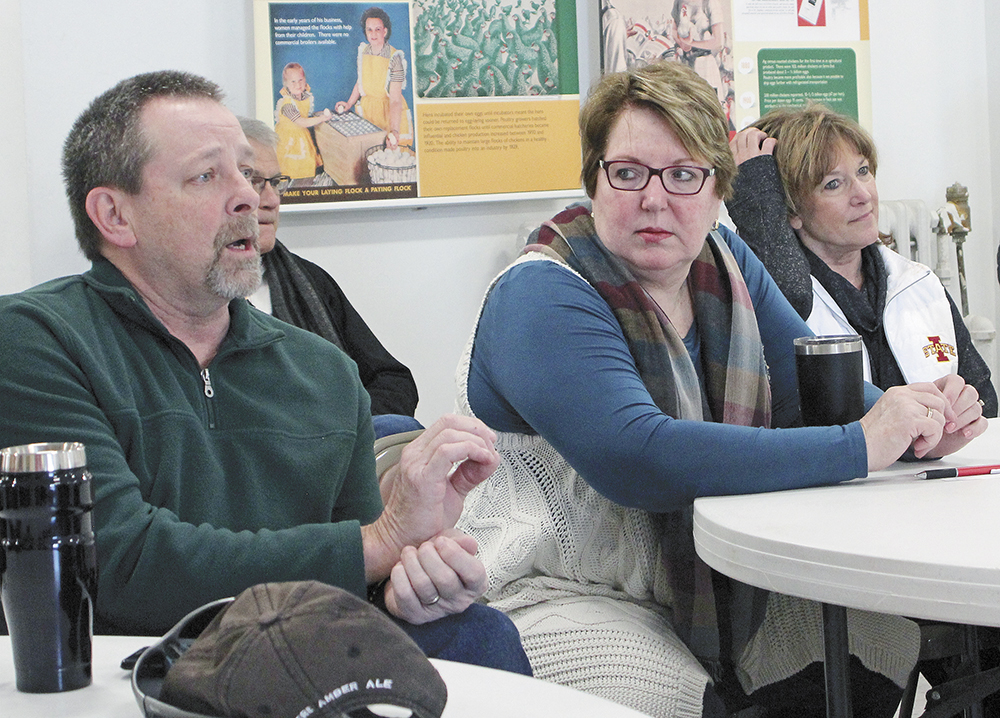
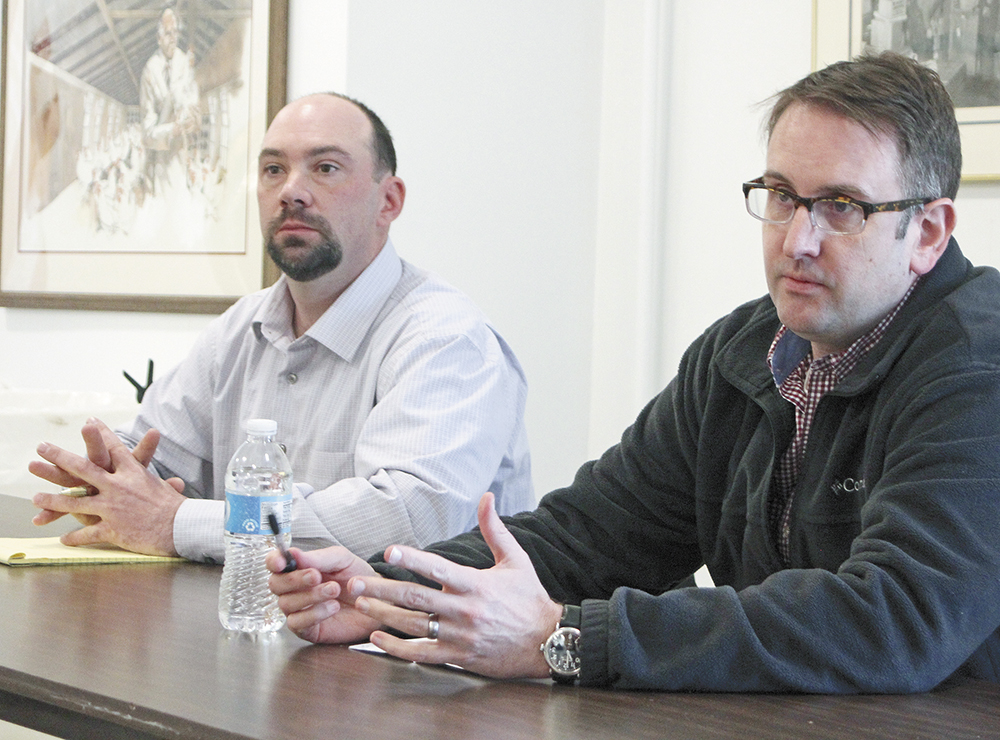
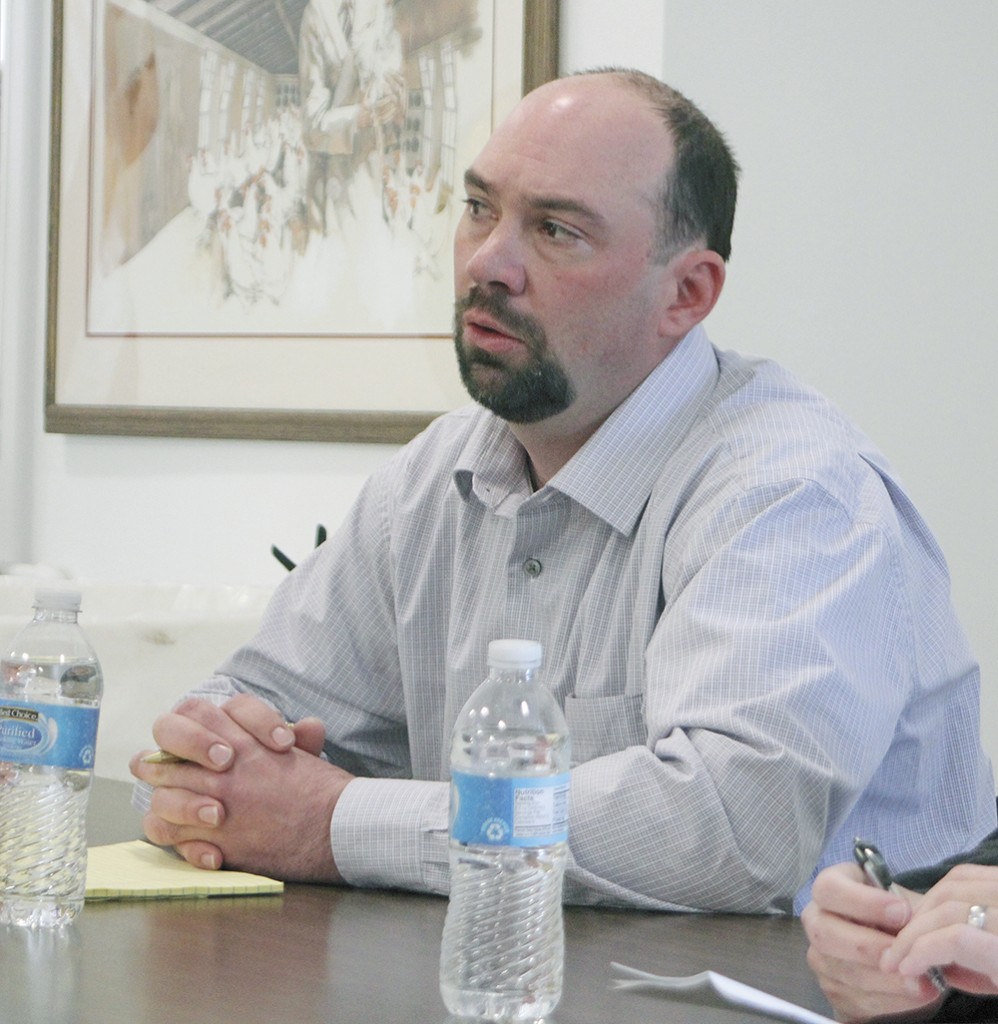

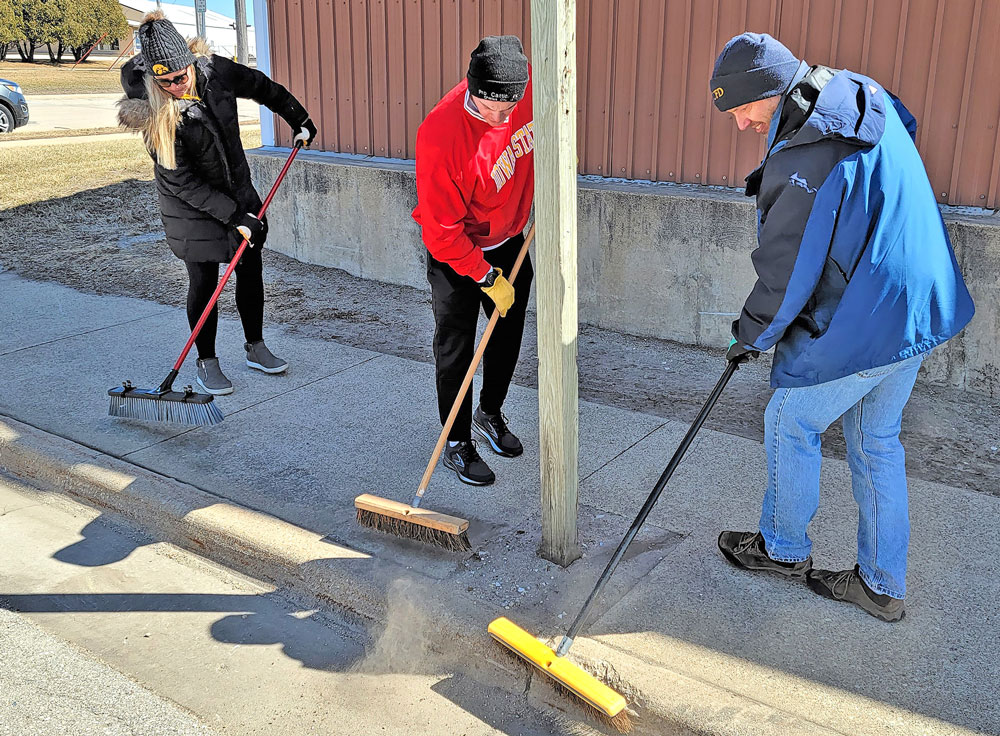





Social Share